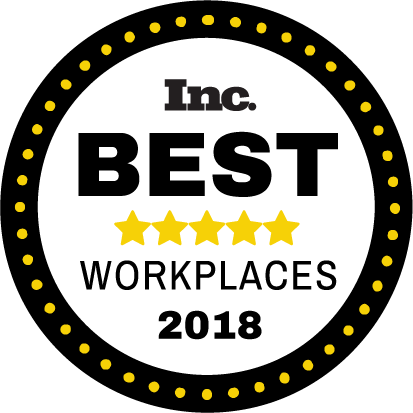Introduction
If you’re in the HVAC or plumbing business, you knew that your work is essential long before the pandemic began.
And the industry is growing: The U.S. HVAC systems market was estimated at $15.16 billion in 2020 and is expected to hit $15.78 billion in 2021. At that rate, the market is projected to reach $23.78 billion by 2028.
If you’re considering buying or selling a heating and cooling business, there’s no time like the present.
Perhaps you're an air-conditioning technician who has mastered your craft and decided to start your own business. Or maybe you’re the owner of a plumbing company and would like to grow by adding air conditioning installation and repair to your services. Or perhaps you’re a family-run HVAC company expanding its regional reach. If you fit into any of these situations, you need to read this guide.
Maybe you’re a veteran HVAC business owner who’s ready to retire. You’d like to sell the business, but you want to make sure your customers (and your longtime employees) are cared for after you depart. Or you might be ready to pass the business down to your kids, but you’re not sure how to do it in a way that makes financial sense for them and you.
If you’re ready to sell, wanting to buy, or wondering how to get a loan to purchase or expand an HVAC business, this guide is for you.
Meet the Experts
This ebook draws from a three-part TradeTalk podcast series featuring interviews with these veterans of buying, selling and funding HVAC and plumbing businesses.
| Patrick Lange, Business Modification Group | Brandon Bolen, Live Oak Bank |
 Patrick Lange, Founder of Business Modification Group, which deals solely in the sale of HVAC companies with $1 to $10 million dollars in revenue. A former HVAC business owner himself, he serves as Vice President of the Business Brokers of Florida (North Florida District). Patrick Lange, Founder of Business Modification Group, which deals solely in the sale of HVAC companies with $1 to $10 million dollars in revenue. A former HVAC business owner himself, he serves as Vice President of the Business Brokers of Florida (North Florida District). |
 Brandon Bolen, VP of Service Contractors at Live Oak Bank in Wilmington, North Carolina. Live Oak is a digital, cloud-based bank serving small business owners in all 50 states and the leading SBA lender by dollar volume in the country. Brandon specializes in providing business loans to HVAC, plumbing and electrical contractors. Brandon Bolen, VP of Service Contractors at Live Oak Bank in Wilmington, North Carolina. Live Oak is a digital, cloud-based bank serving small business owners in all 50 states and the leading SBA lender by dollar volume in the country. Brandon specializes in providing business loans to HVAC, plumbing and electrical contractors. |
To watch the video recording, check out Part 1, Part 2, and Part 3 of the series.
Selling: How to maximize your payout, hire a broker, and leave with integrity
Accounting and record-keeping
If you aim to sell a business, clean books and records are a must. Buyers want to see what's been going on –– and if they need a lender, so will the bank.

Don’t treat your business like a personal bank account
First things first: Paying your household bills from your business accounts is a huge mistake if you’re putting your business up for sale. Your books will dictate the selling price and what a bank will lend the buyer.
Next, don’t get too creative with your accounting. As business owners, we want to do everything we can to minimize tax exposure. But when you sell, you'll be getting paid a multiple of the business’ net income.
You might save 15% on taxes by pouring part of your gross income back into your business, but you could lose three, four, five times that if your tax return reflects a lower net number.
Work with a good accountant
 Are you (or one of your employees) doing bookkeeping in-house? Consider paying a professional instead.
Are you (or one of your employees) doing bookkeeping in-house? Consider paying a professional instead.
“I don't fix my own air conditioner because I can't fix an air conditioner,” says broker Patrick Lange of Business Modification Group. “I'm going to pay somebody to fix it for me who does it all day, every day.”
Most people in the trades are not accountants. They haven’t been trained to keep books. Plus, keeping abreast of the latest tax codes and best practices for accounting is a tall order. Chances are, your time is better spent doing what you do best: servicing your customers and taking care of your employees.
Of course, it’s crucial to outsource accounting to someone you trust. Don’t blindly turn over your books to someone and assume they’ll take care of everything. You've still got to know what your numbers are and maintain a good understanding of what drives your business.
But when you're in the midst of selling, an accountant will have all the necessary information at their fingertips. For instance, a broker might want to know where a company classified its car payments in the ledger. If you’re like most business owners, you wouldn’t know what that means, let alone the answer. That's not where you make your money.
You don’t need a full-time CPA, either. You can hire a bookkeeper to work a few hours a week or contract an accountant to prepare weekly, monthly, or quarterly statements, depending on the size of your company. It can be surprisingly affordable to delegate these tasks, and you’ll probably find it worth every (reconciled) penny.
Have three years of records at the ready
Buyers and lenders usually want to see three years of tax returns, plus the previous year’s profit and loss statement if you haven’t completed those taxes yet. In some cases, you may want or need to provide more information (like if, for example, your 2019 and 2020 returns look very different due to the COVID-19 pandemic.)
Invest in technology
 If a lender asks you how many customers you have in your database and your answer is to go to a 12-drawer filing cabinet and count back from your last invoice, you’re not in an ideal situation to sell. Put yourself in a buyer's shoes and make it easy for them (and their bank). In addition to clean books and records, up-to-date systems streamline the selling process. More importantly, they can enable you to increase your revenue –– and the size of your check when you sell.
If a lender asks you how many customers you have in your database and your answer is to go to a 12-drawer filing cabinet and count back from your last invoice, you’re not in an ideal situation to sell. Put yourself in a buyer's shoes and make it easy for them (and their bank). In addition to clean books and records, up-to-date systems streamline the selling process. More importantly, they can enable you to increase your revenue –– and the size of your check when you sell.
Investing in a field service management software like Service Fusion or Field Edge is increasingly vital as well. Those filing cabinets will also make a buyer wonder whether they’ll be able to unearth your customers’ records when they call for service. They’d much rather know they can look up Mrs. Smith’s records in a tool like ServiceTitan (from anywhere) instead of digging through a file to figure out what you did last time you were at her house.
What happens if the employee who organizes those files (often, the same one who answers the phones, dispatches technicians, and wears many other hats) gets sick or retires? What happens if there’s a fire? A digital system is the best way to ensure your business runs seamlessly now and when the new owner takes the helm.
Repeat revenue and warranties
An HVAC business is built on service. Buyers love to see repeat revenue. So putting maintenance agreements and warranties in place is good for you now and in the potential future when you sell.
Buyers definitely don't want to see a marketing budget that eats up half of your revenue. They want to know your customers will come back over and over again.
What’s more, you can ensure those customers are satisfied and open to additional products or services. Don’t just keep their systems running; build relationships. Sure, they’ll be happy when a technician comes to fix their A/C on a 98-degree holiday weekend, but if you follow up later to ask for their feedback and talk about whether they have indoor air quality concerns, they’ll be impressed –– maybe enough to upgrade their system.
 Typically, companies with a high number of maintenance agreements earn 90 to 95% of their revenue from those customers. Their marketing expenses are minimal to non-existent because they're getting so many calls from maintenance customers. Plus, those customers are referring them to their friends and family.
Typically, companies with a high number of maintenance agreements earn 90 to 95% of their revenue from those customers. Their marketing expenses are minimal to non-existent because they're getting so many calls from maintenance customers. Plus, those customers are referring them to their friends and family.
Maintenance agreements also mean the average ticket per customer is substantially higher. You’re not bidding against competitors when it comes time for them to level up or install something new.
Maintenance agreements are gold for your HVAC business — they lead to a higher sale price because it shows you have ongoing relationships with customers. That also often means a significantly higher payout when the business is sold.
The proof is in the valuation.
Consider two different companies that both bring in $3 million in annual sales. One has 50 maintenance agreements, and the other has 2,000 maintenance agreements. The profitability of the company with 2,000 maintenance agreements is no doubt higher. It has more and better ratings on Google and other consumer review platforms. And it’s a good bet that its employee retention is substantially higher, too.
It’s important to note that valuation can’t be based on those maintenance agreements alone. The real value is having a more profitable company because the buyer will be paying a multiple of your net income. And it’s not an overnight solution: It may take three or four years for a maintenance program to generate the bulk of your revenue.
From an operational perspective, maintenance agreements can seem like a lot of work at the outset, from signing customers to training technicians and making sure they’re representing you well, not just gassing and going. But the rewards are exponential, whether or not your business is for sale.
Self-funded warranties: Know the risks
 It is possible to run your own warranty program and make a profit. But often, HVAC companies are not charging enough or don’t have the proper systems and protections in place. Simply put, they're not in the warranty business. They're in the heating and air business.
It is possible to run your own warranty program and make a profit. But often, HVAC companies are not charging enough or don’t have the proper systems and protections in place. Simply put, they're not in the warranty business. They're in the heating and air business.
From a buyer’s perspective, it’s challenging to gauge the dollar value (and the risk) of a company’s self-funded warranty program. They can’t know what checks and balances were in place at an installation three, five, or ten years ago. And it’s impossible for you to defend. How can you know how long it will take for a compressor to go out and the exact cost when it inevitably does?
Some HVAC business owners say they don’t believe in extended warranties, claiming they don't need them because they do the best installs. But they don't make the equipment. They don't manufacture it. They can’t control all the variables. What happens when there are industry-wide issues with certain parts? Whether you're self-funding a warranty or you don’t offer them at all, you’re at risk. Either you run all those calls for free, or you’re dealing with a whole lot of unhappy customers.
That’s why outsourcing the risk to a company specializing in HVAC extended service agreements (like JB Warranties) makes sense for thousands of companies nationwide.
Minimize involvement in new construction
As a broker, Patrick doesn’t sell many HVAC businesses that focus on installing systems for new construction, “simply because often, the loyalty of a general contractor isn’t high. And if they are loyal, they're loyal to the seller. When they leave, that loyalty leaves with them, and a buyer doesn't like that.”
For that reason, you may also want to minimize your business’ exposure to new construction.
Owner involvement: Don’t stay too long after you sell
As an owner, you’re the face of your business. When you leave, your reputation might go with you, and that can make some buyers nervous. But broker Patrick advises sellers not to agree to stay on with the company long-term. Negotiate a quick transition and stick to it.
Change is hard, but it’s inevitable
The harsh reality of selling a business you founded and grew yourself is that the new seller will likely “come in and change things you've spent your entire life building,” says Patrick.
Many of the sellers he works with have been in the trades for 20 or 30 years, and there’s virtually no line between work and family. They started their companies at their kitchen tables and built them with their own sweat equity. Their kids grew up in the business, too.
If that sounds like you, you know: You’re proud of what you've done, and you’ve made plenty of mistakes along the way. But the new owner might insist on doing those very things that didn’t work for you. If you watch that happen, your relationship with them will deteriorate quickly.
It’s especially frustrating if you sell to someone who knows you and your business well. You’ll tell them that the reason why your revenue is at a certain level is that you’re doing things a certain way. They disagree and change it anyway. That’s much easier to accept if you’re not still in the office, sitting on your hands.
When you sell your business, “the emotional part is harder than the dollar figure part,” says Patrick. “I think a business is worth what it's worth.”
You have to accept that, when you do leave, “tomorrow morning, you're not coming into that office anymore. Tomorrow morning, it's not your problem anymore. Tomorrow morning, those customers –– and employees –– are not yours anymore.”
And even though you've built relationships for years, which are sometimes very difficult to walk away from, they don't need you anymore.
How to manage the transition
 By no means should you sell your company on Monday and walk out on Tuesday. You need to be there for the customers –– and your team. It's a shock to them, especially long-term employees. Usually, the fact that a business is up for sale isn’t public knowledge.
By no means should you sell your company on Monday and walk out on Tuesday. You need to be there for the customers –– and your team. It's a shock to them, especially long-term employees. Usually, the fact that a business is up for sale isn’t public knowledge.
So when an owner, particularly one who has been there for decades, tells their people that they’ve sold the company, it’s quite emotional. Plus, you don’t want them (or your client base) to jump ship.
That’s why it’s better to stay for a short period rather than announce it’s your last day. You might say something like:
As you know, I'm not 19 anymore. It's time for me to move on. I've found a buyer who I think is going to take care of you guys. And I'm going to be here throughout the transition, working with you. We're all in this together.
That will go a long way toward encouraging your employees to stay.
What if you want to stay –– beyond a brief transition period of a few weeks or months?
Sometimes owners do that, either in a sales capacity or as an advisor. But there’s another reason to leave sooner rather than later, and that’s if your buyer is using an SBA (Small Business Administration) loan to fund their purchase.
An SBA loan prohibits the seller from carrying any equity over, which may be an incentive all to itself.
Also, the SBA has a rule that stipulates sellers should be out of the business within 12 months as key employees. What key means, exactly, is open to interpretation –– it’s a bit of a gray area.
Most of the time, sellers are looking to transition for two to three months. They can help things run smoothly, make sure the employees are happy, and perhaps send a direct mailer to customers, endorsing the new buyer. They're usually ready to move on or retire while the buyer does as they please.
So, if you know for sure you’ll be selling, it makes sense to start minimizing your time in the truck or however else you act as the face of the company.
Engaging a broker
You can list and sell your business just like you do with property, meaning you can do it on your own, or you can engage various professionals, including brokers and realtors, to help.
There are even brokers who, like Patrick, focus solely on HVAC businesses.
Patrick has worked on a range of deals, including co-brokered listings. As long as it doesn't affect the speed of a deal, then he doesn't mind if another broker is involved.
 A good broker has a vested interest in selling your business at market value in a relatively short amount of time. The faster a company sells, the quicker he gets paid, and the bigger the deal, the bigger his commission.
A good broker has a vested interest in selling your business at market value in a relatively short amount of time. The faster a company sells, the quicker he gets paid, and the bigger the deal, the bigger his commission.
You should, however, be willing to hear the truth about that market value, even if you’re convinced you should get a specific dollar amount, and allow your broker to adjust accordingly. Nationwide, only about 20% of businesses listed with a broker actually sell. Patrick thinks poor pricing is one of the main reasons –– a business owner will say they want $5 million, and their broker will list it at that price without ever telling them it won’t sell at that price. So the company sits on the market and eventually closes down.
Researching and analyzing market data on comparative sales is vital to listing a business at an appropriate price.
“People don't hire me to get it listed,” says Patrick. “I can't feed my family with a listing. My business drives on business sales. So, I tell them when they come to me, Here's where the market is, and here's what it's been selling for. Here's where I think it is.”
Most of 2020 and the first half of 2021 were a challenge because the market was hot.
Not only were interest rates low for lenders across the board, but Patrick was also competing with private equity firms that have exponential purchasing power. Banks like Brandon’s might not give a loan to an individual buyer based on an inflated valuation, but private equity can buy that company anyway –– and artificially drive up market prices in the process. They can also buy a business at a higher valuation than what it may actually be worth.
After all, businesses, like anything else, are worth what somebody is willing to pay at a given time.
How long will it take?
If you think you’re ready to sell your business, expect a timeline commensurate with your records, revenue, and reputation. If your books and records are a complete disaster and you're expecting top dollar, you're going to need three years –– because buyers and banks ask for three years of tax returns. That’s true regardless of the size of your business and especially if you’re self-employed.
If everything is in order, in today's market, the average company Business Modification Group works with is listed, marketed, and sold in under six months.
Buying: How to prepare and what to know, including what to say ‘no’ to
Looking to acquire an HVAC business? In addition to ensuring you're in a financial position to buy, here’s what brokers and lenders want you to know.
Get your own house in order first
 Experts agree: Your own company (or companies) should be in top shape before you even consider buying another.
Experts agree: Your own company (or companies) should be in top shape before you even consider buying another.
If any aspect of your existing business is in disarray, growth just magnifies the issue. So if you don't manage people well, don't have sound systems in place, or don't have a good CRM, buying more technicians and a phone ringing off the hook won’t fix those problems.
You should also make sure you have the infrastructure and bandwidth to handle a transition. Place a premium on the loyalty of your current employees and customers. If you can't get to your own calls, much less 50 new calls that you’ll get every day if you expand too fast, both your team and your client base will make a swift exit.
Buyer beware: Red flags
If you’re interested in selling, take note: These warning signs give most trade-based small business brokers and lenders pause –– or are outright deal-breakers.
A bad or nonexistent online reputation
Banks and brokers use Google, too. They look at customer ratings on top review sites, as well as Better Business Bureau pages.
Usually, Brandon and his team at Live Oak don’t find many complaints because, by the time a company has reached $1 million in sales or more, they're employing customer surveys that help it address any problems immediately. In that way, “good reviews indicate all of these extra steps that are in place already,” he says.
Don’t panic if a few less-than-glowing reviews are out there. Some customers will always complain, especially about pricing.
But complaints about work quality are viewed differently.
Legal trouble
Lenders always ask about lawsuits, and you should ask too. Remember: it’s all about calculating potential risk.
If there is any litigation against a business, do look at the nature of it. An employee falling and hurting themselves doesn’t present a risk for you as a buyer, but five customers suing the company because of something unethical absolutely does.
Funky numbers
The importance of clean books can’t be understated. After years in the business, Patrick and any reputable broker will know when numbers are realistic and when they’re…off.
If he talks to an owner who claims they’re doing $2 million in sales, he knows that the net revenue should be approximately 15% of that number. So if the owner claims their income is $600,000, there’s something amiss. He’ll ask for their tax return, which claims the company did $1.1 million in sales last year, but the boks show a loss of $25,000 a year.
Where’s the rest? The owner says he did that business in cash.
If you’re a buyer or a bank, you're only going to write a check based on the revenue you can prove. So if you’re engaging in creative accounting to mitigate tax risk, it can hurt your bottom line when you sell your business.
Who Says You Can't Take It with You?
Just fill out this form to get a copy of this content in a PDF eBook format.
Funding: How to finance your acquisition of an HVAC business
SBA 7(a) loans: Government-backed growth
 The Small Business Administration's 7(a) loan program is a government-guaranteed loan. That’s significant for a business owner because traditional loans require collateral, but SBA loans qualify lenders using different metrics.
The Small Business Administration's 7(a) loan program is a government-guaranteed loan. That’s significant for a business owner because traditional loans require collateral, but SBA loans qualify lenders using different metrics.
How SBA 7(a) loans differ from conventional loans
If you own an HVAC company and want to buy another one for $1 million, you might not have much collateral beyond the value of your vehicles. A local bank will likely ask you to prove you have $1 million worth of equipment to secure the loan –– or put 30% down. Those are some pretty high hurdles.
With an SBA 7(a) loan, the focus is on cash flow. Instead of collateral, the lender looks for evidence that a business’ profits can repay the loan. Because the government's insuring the majority of the loan, the lender takes on less risk. So your access to financing, and ultimately a yes to grow your company, is greater than a conventional loan.
They’re not crisis loans
The SBA 7(a) program is available every single year. During the COVID-19 crisis, PPP and EIDL loans are what brought SBA lending to the fore. The majority of small businesses qualified for a PPP loan in 2020, but the SBA 7(a) program is different. Instead of helping your business out of a hole, it's meant to empower growth.
Maximum (and average) funding
The maximum SBA loan amount you can get is $5 million, though buyers typically take out much less. The average amount of Live Oak’s SBA loans for business acquisition is about $1.3 million.
Beyond business acquisition
You can also use an SBA 7(a) loan to purchase real estate (either an existing building or land), finance the cost of building a new facility, refinancing an existing business to improve your monthly cash flow or get an injection of working capital.
What a lender looks for
 There are three significant things an SBA lender bank uses to qualify you for a loan.
There are three significant things an SBA lender bank uses to qualify you for a loan.
- Cash flow: Because these loans aren't collateral-based, SBA lenders want to ensure that either your business or the business you're looking to acquire is cash-flow-positive and can support the debt you'll be taking on.
- Resume: If you're a business owner of a home service company that's successful, that box is checked pretty easily.
- Personal credit: Even though it's a business loan, SBA lenders do look for a credit score of 660 or above and a solid personal financial statement (PFS).
Timeline: What to expect when
Though it will vary from one institution to another, getting a loan can happen faster than you think. Acquiring a business is what takes longer.
At Live Oak, for example, the loan application and approval process is straightforward and quick. After a prospective borrower submits a loan application, they could get a response within a day if the deal can go ahead. The next step is underwriting, which can take five to seven business days.
Then the loan goes to the bank’s credit team for approval. In less than two weeks, you’ll know whether or not you're going to get the money to grow your company.
From there, a business acquisition requires a closing process. You’ll sign purchase agreements if you haven’t already. The bank will make sure various insurances are in place. This phase typically takes about 30 to 45 days. If you're buying real estate as part of the acquisition, the average is 40 to 60 days because appraisals and third-party reports can take a lot longer.
Succession planning: How to keep the family business in the family
 The majority of firms in the HVAC industry are small, family-owned or sole proprietorship businesses. And more than 70% of HVAC companies in the U.S. have been passed down at least one generation.
The majority of firms in the HVAC industry are small, family-owned or sole proprietorship businesses. And more than 70% of HVAC companies in the U.S. have been passed down at least one generation.
Perhaps your children already work at your company and want to acquire it when you retire. But you don't want your life savings tied up while they’re paying you for the business over time.
When Patrick first meets with prospective sellers, he asks whether they have family members who may be interested and qualified to buy. That's because, as Brandon explains, those are some of the easiest deals for his bank to approve. But he does recommend having a plan in place long before the sale takes place.
If you have a family member or several –– or even a longtime employee –– who wants to succeed you, talk to a bank together, even if the transition is five years or more from now. Make sure they understand how much to save for a down payment and how to build their credit score.
With smart succession planning, you can enjoy watching the second or third generation of your company flourish. Your kids aren’t paying you (and you’re not badgering them for a monthly check). They’re paying the bank, and you have the cash for your retirement.
Team players: Buying as a group
Considering a group purchase with some of your fellow employees?
If you take out an SBA loan to fund the acquisition, everyone who owns 20% or more has to be a personal guarantor. So if your group is, say, six people, two or three will hold a more significant portion of the company, provide most of the down payment, and need a credit score good enough to qualify for the loan.
The people who would own less than 20% aren’t considered guarantors and aren’t qualified by the bank. So if one partner has a history of bankruptcy, you can still go into business together, but you should make him a 10% owner. He won’t qualify for an SBA loan.
If you’re interested in buying your boss’ company one day, talk about it. Like family succession, it’s a great way to ensure the reputation and spirit of a small business survives.
Key Takeaways
🔩 Conscientious bookkeeping and organized records are a must
🧰 Maintenance agreements can help your bottom line and make your business more attractive to buyers
🔧 If you’re selling, aim for a short transition between you and the new owner
🚚 Any existing businesses you own should be in good order before you buy another
🌡 SBA 7(a) loans are government-backed and do not require collateral. Instead, banks lend based on the cash flow of the business you want to acquire, although your personal credit score does matter.
💰 It’s never too early to start planning to pass your business down to your family or sell it to longtime employees. Talk to an SBA loan-granting bank about how you can prepare for future succession.


